Top 10 20th Century Compositions for 2008
Posted by: mikeeschman on 24 November 2008
Messiaen Quartet for the End of Time
Prokofiev Symphony No. 5
Prokofiev Violin Concertos
Prokofiev Violin Sonatas
Stravinsky Pulcinella
Stravinsky Firebird
Shostakovitch Symphony No. 1
Bartok Concerto for Orchestra
Hindemith Mathis der Maler
Rachmanninoff Symphonic Dances
Prokofiev Symphony No. 5
Prokofiev Violin Concertos
Prokofiev Violin Sonatas
Stravinsky Pulcinella
Stravinsky Firebird
Shostakovitch Symphony No. 1
Bartok Concerto for Orchestra
Hindemith Mathis der Maler
Rachmanninoff Symphonic Dances
Posted on: 24 November 2008 by droodzilla
Hi Mike - Nice list.
I'd be interested in seeing a similar list devoted to chamber/instrumental music, if you could put your mind to it. I'm especially interested in solo piano music.
Thanks
Nigel
I'd be interested in seeing a similar list devoted to chamber/instrumental music, if you could put your mind to it. I'm especially interested in solo piano music.
Thanks
Nigel
Posted on: 24 November 2008 by mikeeschman
quote:Originally posted by droodzilla:
Hi Mike - Nice list.
I'd be interested in seeing a similar list devoted to chamber/instrumental music, if you could put your mind to it. I'm especially interested in solo piano music.
Thanks
Nigel
there are several chamber works on the list -
the prokofiev violin sonatas, and the quartet for the end of time.
i was hoping other people would post lists of their own, too.
here are a couple of other things you might want to look into :
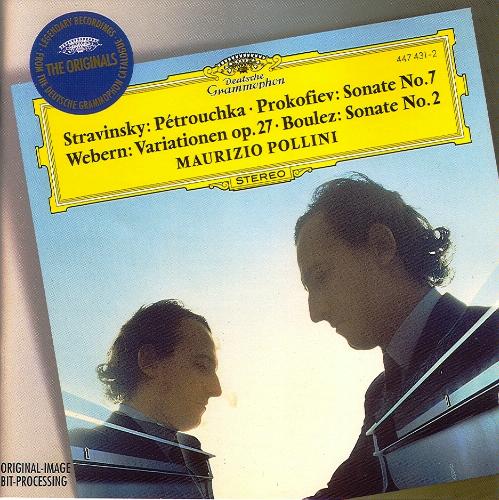
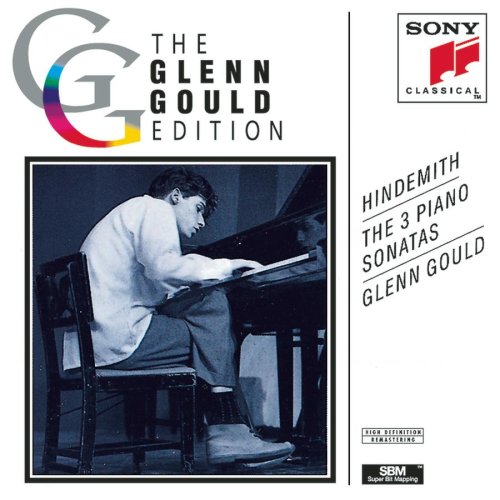
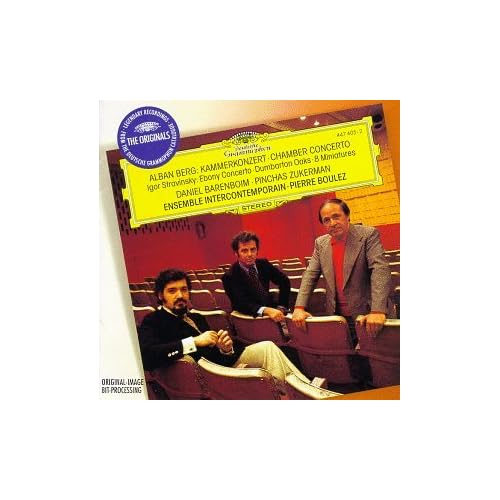
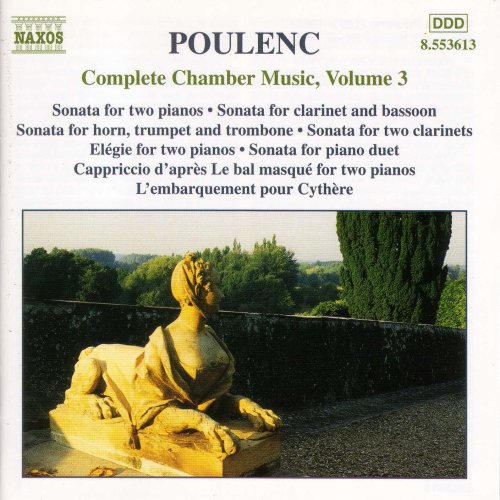
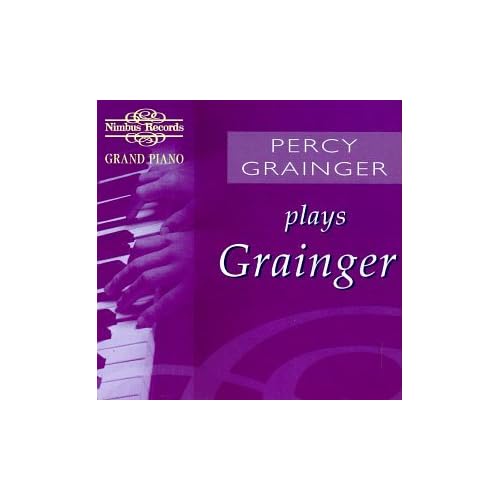
Posted on: 24 November 2008 by Todd A
An almost impossible task really, but here goes:
Bartok – String Quartet 4
Bartok – Music for Strings, Percussion, and Celesta
Berg – Wozzeck
Berg – Lulu
Mahler – Symphony 6
Mahler – Symphony 9
Debussy – Preludes (must be the complete set)
Shostakovich – String Quartet 9
Sibelius – Symphony 7
Stravinsky – The Rite of Spring
For droodzilla, here are a few:
Chamber (includes works with voice)
Bartok – String Quartet 4
Bartok – String Quartet 5
Bartok – Violin Sonata 2
Shostakovich – String Quartet 9
Shostakovich – String Quartet 12
Shostakovich – String Quartet 13
Schulhoff – String Quartet 1
Scelsi – Khoom
Schoenberg – Pierrot Lunaire
Boulez – Sur Incises
Keyboard
Debussy – Preludes
Ravel – Gaspard de la nuit
Messiaen – Vingt Regards
Prokofiev – Sonata 6
Berg – Sonata, Op 1
Schoenberg – Three Piano Pieces, Op 11
Scriabin – Sonata 10
Ligeti – Etudes
Szymanowski – Sonata 2
Boulez – Sonata 2
--
Bartok – String Quartet 4
Bartok – Music for Strings, Percussion, and Celesta
Berg – Wozzeck
Berg – Lulu
Mahler – Symphony 6
Mahler – Symphony 9
Debussy – Preludes (must be the complete set)
Shostakovich – String Quartet 9
Sibelius – Symphony 7
Stravinsky – The Rite of Spring
For droodzilla, here are a few:
Chamber (includes works with voice)
Bartok – String Quartet 4
Bartok – String Quartet 5
Bartok – Violin Sonata 2
Shostakovich – String Quartet 9
Shostakovich – String Quartet 12
Shostakovich – String Quartet 13
Schulhoff – String Quartet 1
Scelsi – Khoom
Schoenberg – Pierrot Lunaire
Boulez – Sur Incises
Keyboard
Debussy – Preludes
Ravel – Gaspard de la nuit
Messiaen – Vingt Regards
Prokofiev – Sonata 6
Berg – Sonata, Op 1
Schoenberg – Three Piano Pieces, Op 11
Scriabin – Sonata 10
Ligeti – Etudes
Szymanowski – Sonata 2
Boulez – Sonata 2
--
Posted on: 24 November 2008 by mikeeschman
quote:Originally posted by Todd A:
An almost impossible task really, but here goes:
--
nice list of the top 10 todd ...
the bartok string quartets are among your favorites? :-)
here's another one to look at :

and if you get the prokofiev violin sonatas,
order them by shlomo mintz, a dgg recording available from arkivmusic.com.
for the prokofiev violin concertos, also shlomo mintz from arkivmusic.com
in fact, shlomo mintz for anything but bach.
not 20th century, but the most amazing thing i have heard anybody ever play in the 20th century :
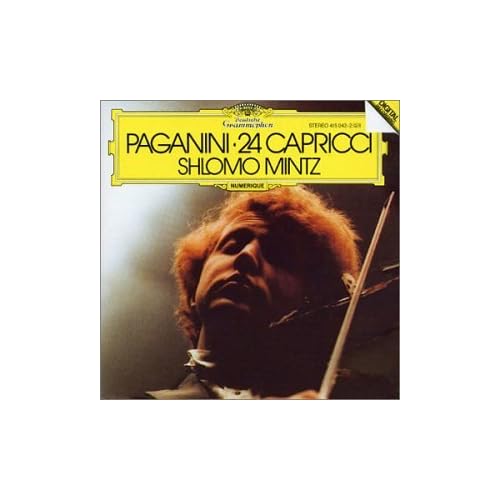
Posted on: 24 November 2008 by Florestan
As was mentioned above, an impossible task. So in addition to what's already been offered I'll add a few more:
Chamber:
Dmitri Shostakovich: Trio for Piano, Violin and Violoncello no. 2 in e minor, op. 67
Dmitri Shostakovich: Piano Quintet in g minor, Op. 57
Dmitri Shostakovich: Sonata for Violoncello & Piano, Op. 40
Serge Prokofiev: Sonate for Violin & Piano No. 1 in f minor, op. 80
Serge Prokofiev: Sonate for Violin & Piano No. 2 in D major, op. 94a
Serge Prokofiev: Five Melodies for Violin and Piano, op. 35bis
Sergei Rachmaninov: Trio elegiaque No. 2 in d minor, Op. 9
Sergei Rachmaninov: Sonata for cello and piano in g minor, Op. 19
Maurice Ravel: Trio in a minor for piano, violin, & cello
Claude Debussy: Violin Sonata in g minor
Piano:
Sergei Rachmaninov: Suite No. 1 "Fantaisie-tableaux', Op. 5 (for 2 pianos)
Sergei Rachmaninov: Sonata No. 2 in b-flat minor, Op. 36
Sergei Rachmaninov: Preludes, Op. 23 and Op. 32
Sergei Rachmaninov: Etudes, Op. 33 & Op. 39
Serge Prokofiev: Piano Sonatas (1-9)
Serge Prokofiev: Visions fugitives Op. 22, Toccata in d minor, Op. 11, Sarcasms, Op. 17 etc.
Bela Bartok: Allegro barbaro, BB63, 4 Dirges, BB 58, 3 Studies, BB81 etc.
Maurice Ravel: Miroirs or Jeux d'eau
Claude Debussy: Preludes, Etudes, Images, or Estampes
Nikolai Medtner: Sonatas or Forgotten Melodies
Ah, it's futile and pointless to try and make a list of only 10...just can't do it : (
Chamber:
Dmitri Shostakovich: Trio for Piano, Violin and Violoncello no. 2 in e minor, op. 67
Dmitri Shostakovich: Piano Quintet in g minor, Op. 57
Dmitri Shostakovich: Sonata for Violoncello & Piano, Op. 40
Serge Prokofiev: Sonate for Violin & Piano No. 1 in f minor, op. 80
Serge Prokofiev: Sonate for Violin & Piano No. 2 in D major, op. 94a
Serge Prokofiev: Five Melodies for Violin and Piano, op. 35bis
Sergei Rachmaninov: Trio elegiaque No. 2 in d minor, Op. 9
Sergei Rachmaninov: Sonata for cello and piano in g minor, Op. 19
Maurice Ravel: Trio in a minor for piano, violin, & cello
Claude Debussy: Violin Sonata in g minor
Piano:
Sergei Rachmaninov: Suite No. 1 "Fantaisie-tableaux', Op. 5 (for 2 pianos)
Sergei Rachmaninov: Sonata No. 2 in b-flat minor, Op. 36
Sergei Rachmaninov: Preludes, Op. 23 and Op. 32
Sergei Rachmaninov: Etudes, Op. 33 & Op. 39
Serge Prokofiev: Piano Sonatas (1-9)
Serge Prokofiev: Visions fugitives Op. 22, Toccata in d minor, Op. 11, Sarcasms, Op. 17 etc.
Bela Bartok: Allegro barbaro, BB63, 4 Dirges, BB 58, 3 Studies, BB81 etc.
Maurice Ravel: Miroirs or Jeux d'eau
Claude Debussy: Preludes, Etudes, Images, or Estampes
Nikolai Medtner: Sonatas or Forgotten Melodies
Ah, it's futile and pointless to try and make a list of only 10...just can't do it : (
Posted on: 24 November 2008 by mikeeschman
quote:Originally posted by Florestan:
Ah, it's futile and pointless to try and make a list of only 10...just can't do it : (
but you did, and a very nice list it is :-)
it gets easier as you get older. you tend to listen to a piece for a while (maybe to keep warm). ten good pieces can carry you through
a quarter.
the 17 i dribbled out over two posts are the ones i kept returning to this year. the ones full of beauty and illumination just now.
i'm sure next year will be different.
and i hope someone else loves the quartet for the end of time. it truly touches my soul.
Posted on: 24 November 2008 by fred simon
Oh, man, there are so many ... where to even begin?
Well, here's just a few no one has mentioned yet:
Serge Prokofiev - Piano Concerto in G minor (the relatively recent recording by Yundi Li and Seiji Ozawa is phenomenal, paired with a great performance of another piece that should be mentioned, Ravel's Piano Concerto in G
Alban Berg - Violin Concerto
Steve Reich - Music for 18 Musicians
All best,
Fred
Posted on: 24 November 2008 by stephenjohn
Bartok SQ No 3 need to be on my list.
I'll need to think hard about the other 9
I'll need to think hard about the other 9
Posted on: 25 November 2008 by Guido Fawkes
1. Sinfonietta (Leos Janáček)
Posted on: 25 November 2008 by JWM
Jehan Alain, Le Jardin Suspendu
Benjamin Britten, Peter Grimes
John Tavener, The Lamb
Benjamin Britten, Peter Grimes
John Tavener, The Lamb
Posted on: 25 November 2008 by mikeeschman
as far as recommended recordings, for the rachmaninoff symphonic dances, i highly recommend the Martha Argerich, and Nicolas Economou two piano version to any orchestral version or any other piano performances.
for the hindemith mathis der maler, i just ordered the abbado/berlin version and my expectations are very high. i already have hindemith himself conducting berlin, which is wonderful, but it is a 50s era mono recording in a three cd set (most of the music in the set i find unremarkable unless you are a hindemith scholar) - the problem with the recording is that the big brass chorals sound quite harsh and the sound "clumps up". hearing the overtones with clarity puts all the life back in those chorales, and i think the abaddo will do that (let's hope so).
for the prokofiev symphony no. 5, i have a slatkin(?)/st. louis recording which is very good. but i am awaiting a levine/chicago with great anticipation. i think the greater precision of the chicago band will do much to illuminate the work. the only question here is how levine gets along with prokofiev. i will let you know :-)
for the hindemith mathis der maler, i just ordered the abbado/berlin version and my expectations are very high. i already have hindemith himself conducting berlin, which is wonderful, but it is a 50s era mono recording in a three cd set (most of the music in the set i find unremarkable unless you are a hindemith scholar) - the problem with the recording is that the big brass chorals sound quite harsh and the sound "clumps up". hearing the overtones with clarity puts all the life back in those chorales, and i think the abaddo will do that (let's hope so).
for the prokofiev symphony no. 5, i have a slatkin(?)/st. louis recording which is very good. but i am awaiting a levine/chicago with great anticipation. i think the greater precision of the chicago band will do much to illuminate the work. the only question here is how levine gets along with prokofiev. i will let you know :-)
Posted on: 25 November 2008 by mikeeschman
about hindemith, here's an interesting keyboard work. i have it somewhere on lp and it can be ordered as a cd from amazon (haven't heard the cd).
this is not so much for enjoyment. but the few times i listened to it with concentration, it did stretch out my ears in a way that still sticks with me :
Ludus Tonalis can be thought of as the most direct application of Hindemith's short lived theory that the twelve tones of the equally tempered scale all relate to a single one of them (called a tonic or keynote). The affinity of each note with the keynote is directly related to its position on the harmonic scale. In this system, the major-minor duality is meaningless and the practice of modulation is dropped.
this is not so much for enjoyment. but the few times i listened to it with concentration, it did stretch out my ears in a way that still sticks with me :
Ludus Tonalis can be thought of as the most direct application of Hindemith's short lived theory that the twelve tones of the equally tempered scale all relate to a single one of them (called a tonic or keynote). The affinity of each note with the keynote is directly related to its position on the harmonic scale. In this system, the major-minor duality is meaningless and the practice of modulation is dropped.
Posted on: 25 November 2008 by mikeeschman
about messiaen's quartet for the end of time :
MESSIAEN: Quartet for the End of Time
Program Notes
In 1940, Olivier Messiaen (1908-92) was interned in a German prison camp, where he discovered among his fellow prisoners a clarinettist, a violinist and a violoncellist. The success of a short trio which he wrote for them led him to add seven more movements to this Interlude, and a piano to the ensemble, to create the Quartet for the End of Time. Messiaen and his friends first performed it for their 5000 fellow prisoners on January 15, 1941.
If the plain facts of the work's origins are simple, the spiritual facts are far more complex. Messiaen's religious mysticism found a point of departure for the Quartet in the passage in the Book of Revelation (chapter 10) about the descent of the seventh angel, at the sound of whose trumpet the mystery of God will be consummated, and who announces "that there should be time no longer."
According to the composer, the Quartet was intended not to be a commentary on the Apocalypse, nor to refer to his own captivity, but to be a kind of musical extension of the Biblical account, and of the concept of the end of Time as the end of past and future and the beginning of eternity. For Messiaen there was also a musical sense to the angel's announcement. His development of a varied and flexible rhythmic system, based in part on ancient Hindu rhythms, came to fruition in the Quartet, where more or less literally Messiaen put an end to the equally measured "time" of western classical music.
The architecture of the Quartet is both musical and mystical. There are eight movements because God rested on the seventh day after creation, a day which extended into the eighth day of timeless eternity. There are intricate thematic relationships, as for example between movements two and seven, both of which are about the angel; and stylistic and theological relationships, as between movements five and eight.
In a preface to the score, Messiaen commented on each of the movements:
Liturgy of crystal. Between three and four o'clock in the morning, the awakening of the birds: a blackbird or a solo nightingale improvises, surrounded by efflorescent sound, by a halo of trills lost high in the trees...
Vocalise, for the Angel who announces the end of Time. The first and third parts (very short) evoke the power of this mighty angel, a rainbow upon his head and clothed with a cloud, who sets one foot on the sea and one foot on the earth. In the middle section are the impalpable harmonies of heaven. In the piano, sweet cascades of blue-orange chords, enclosing in their distant chimes the almost plainchant song of the violin and violoncello.
Abyss of the birds. Clarinet alone. The abyss is Time with its sadness, its weariness. The birds are the opposite to Time; they are our desire for light, for stars, for rainbows, and for jubilant songs.
Interlude. Scherzo, of a more individual character than the other movements, but linked to them nevertheless by certain melodic recollections.
Praise to the Eternity of Jesus. Jesus is considered here as the Word. A broad phrase, infinitely slow, on the violoncello, magnifies with love and reverence the eternity of the Word, powerful and gentle, ... "In the beginning was the Word, and Word was with God, and the Word was God."
Dance of fury, for the seven trumpets. Rhythmically, the most characteristic piece in the series. The four instruments in unison take on the aspect of gongs and trumpets (the first six trumpets of the Apocalypse were followed by various catastrophes, the trumpet of the seventh angel announced the consummation of the mystery of God). Use of added [rhythmic] values, rhythms augmented or diminished... Music of stone, of formidable, sonorous granite...
A mingling of rainbows for the Angel who announces the end of Time. Certain passages from the second movement recur here. The powerful angel appears, above all the rainbow that covers him... In my dreams I hear and see a catalogue of chords and melodies, familiar colours and forms... The swords of fire, these outpourings of blue-orange lava, these turbulent stars...
Praise to the Immortality of Jesus. Expansive solo violin, counterpart to the violoncello solo of the fifth movement. Why this second encomium? It addresses more specifically the second aspect of Jesus, Jesus the Man, the Word made flesh... Its slow ascent toward the most extreme point of tension is the ascension of man toward his God, of the child of God toward his Father, of the being made divine toward Paradise.
MESSIAEN: Quartet for the End of Time
Program Notes
In 1940, Olivier Messiaen (1908-92) was interned in a German prison camp, where he discovered among his fellow prisoners a clarinettist, a violinist and a violoncellist. The success of a short trio which he wrote for them led him to add seven more movements to this Interlude, and a piano to the ensemble, to create the Quartet for the End of Time. Messiaen and his friends first performed it for their 5000 fellow prisoners on January 15, 1941.
If the plain facts of the work's origins are simple, the spiritual facts are far more complex. Messiaen's religious mysticism found a point of departure for the Quartet in the passage in the Book of Revelation (chapter 10) about the descent of the seventh angel, at the sound of whose trumpet the mystery of God will be consummated, and who announces "that there should be time no longer."
According to the composer, the Quartet was intended not to be a commentary on the Apocalypse, nor to refer to his own captivity, but to be a kind of musical extension of the Biblical account, and of the concept of the end of Time as the end of past and future and the beginning of eternity. For Messiaen there was also a musical sense to the angel's announcement. His development of a varied and flexible rhythmic system, based in part on ancient Hindu rhythms, came to fruition in the Quartet, where more or less literally Messiaen put an end to the equally measured "time" of western classical music.
The architecture of the Quartet is both musical and mystical. There are eight movements because God rested on the seventh day after creation, a day which extended into the eighth day of timeless eternity. There are intricate thematic relationships, as for example between movements two and seven, both of which are about the angel; and stylistic and theological relationships, as between movements five and eight.
In a preface to the score, Messiaen commented on each of the movements:
Liturgy of crystal. Between three and four o'clock in the morning, the awakening of the birds: a blackbird or a solo nightingale improvises, surrounded by efflorescent sound, by a halo of trills lost high in the trees...
Vocalise, for the Angel who announces the end of Time. The first and third parts (very short) evoke the power of this mighty angel, a rainbow upon his head and clothed with a cloud, who sets one foot on the sea and one foot on the earth. In the middle section are the impalpable harmonies of heaven. In the piano, sweet cascades of blue-orange chords, enclosing in their distant chimes the almost plainchant song of the violin and violoncello.
Abyss of the birds. Clarinet alone. The abyss is Time with its sadness, its weariness. The birds are the opposite to Time; they are our desire for light, for stars, for rainbows, and for jubilant songs.
Interlude. Scherzo, of a more individual character than the other movements, but linked to them nevertheless by certain melodic recollections.
Praise to the Eternity of Jesus. Jesus is considered here as the Word. A broad phrase, infinitely slow, on the violoncello, magnifies with love and reverence the eternity of the Word, powerful and gentle, ... "In the beginning was the Word, and Word was with God, and the Word was God."
Dance of fury, for the seven trumpets. Rhythmically, the most characteristic piece in the series. The four instruments in unison take on the aspect of gongs and trumpets (the first six trumpets of the Apocalypse were followed by various catastrophes, the trumpet of the seventh angel announced the consummation of the mystery of God). Use of added [rhythmic] values, rhythms augmented or diminished... Music of stone, of formidable, sonorous granite...
A mingling of rainbows for the Angel who announces the end of Time. Certain passages from the second movement recur here. The powerful angel appears, above all the rainbow that covers him... In my dreams I hear and see a catalogue of chords and melodies, familiar colours and forms... The swords of fire, these outpourings of blue-orange lava, these turbulent stars...
Praise to the Immortality of Jesus. Expansive solo violin, counterpart to the violoncello solo of the fifth movement. Why this second encomium? It addresses more specifically the second aspect of Jesus, Jesus the Man, the Word made flesh... Its slow ascent toward the most extreme point of tension is the ascension of man toward his God, of the child of God toward his Father, of the being made divine toward Paradise.
Posted on: 25 November 2008 by stephenjohn
...in addition to Bartok SQ 3
Shostakovich symph 5, viola sonata, and preludes and fugues.
Schnittke [sp?] concerto grosso No1
VW symph 5
Copland symph 3
Carter SQ 1 [still thinking about the other 2]
SJ
Shostakovich symph 5, viola sonata, and preludes and fugues.
Schnittke [sp?] concerto grosso No1
VW symph 5
Copland symph 3
Carter SQ 1 [still thinking about the other 2]
SJ
Posted on: 25 November 2008 by Wolf2
most very eurocentric
how about Gershwin Rhapsody in Blue
always a pleaser and influenced a lot of composers.
how about Gershwin Rhapsody in Blue
always a pleaser and influenced a lot of composers.
Posted on: 25 November 2008 by mikeeschman
quote:Originally posted by Wolf2:
most very eurocentric
how about Gershwin Rhapsody in Blue
always a pleaser and influenced a lot of composers.
what about copland and bernstien?
Posted on: 25 November 2008 by Oldnslow
Well, here's a very interesting set of 12 piano sonatas by an American composer I never heard of before--Vincent Persichetti (New World Records-2-CD set). Wonderful, eclectic works beautifully played by a pianist named Geoffrey Burleson. Been listening to them for a few days now and can't get enough of them.....
Posted on: 25 November 2008 by mikeeschman
quote:Originally posted by Oldnslow:
Well, here's a very interesting set of 12 piano sonatas by an American composer I never heard of before--Vincent Persichetti (New World Records-2-CD set). Wonderful, eclectic works beautifully played by a pianist named Geoffrey Burleson. Been listening to them for a few days now and can't get enough of them.....
i played some persichetti back in college, ir was interesting stuff.
Posted on: 25 November 2008 by mikeeschman
got the prokofiev symphony no. 5 levine/chicago today.
there is a mad demon clock that ticks away like an undercurrent through this piece. the rhythm is complex, rich bathed in splashes of sonority.
Chicago is the orchestra to beat. they are unrivaled in the world. this disk proves it.
you can get it at arkivmusic.com
there is a mad demon clock that ticks away like an undercurrent through this piece. the rhythm is complex, rich bathed in splashes of sonority.
Chicago is the orchestra to beat. they are unrivaled in the world. this disk proves it.
you can get it at arkivmusic.com
Posted on: 25 November 2008 by stephenjohn
Carter is American too
Posted on: 26 November 2008 by mikeeschman
I have two great recordings of stravinsky's pulcinella. one two cd set (mono) of stravinsky conducts stravinsky that includes the fairy's kiss, symphony in c and the history of a soilder - highly recommended.
the other is a french disk with boulez, also very nice.
the sound is beautiful on both sets. if i had to pick one, it would be the stravinsky conducts stravinsky.
for the firebird my longtime favorite is rattle/birmingham.
berstein/n y phil is my favorite shostakovitch symphony no. 1.
for the bartok concerto for orchestra i have two favorites, both conducted by boulez.
boulez/berlin on dvd.
boulez/chicago on cd.
i recommend buying both. i think these are the two greatest orchestras in the world, and boulez is the best bartok conductor i have heard.
the berlin is great, cause you can watch the players :-)
the chicago is awe inspiring, because they are so perfect in every way. no other orchestra in the world is so perfect.
the other is a french disk with boulez, also very nice.
the sound is beautiful on both sets. if i had to pick one, it would be the stravinsky conducts stravinsky.
for the firebird my longtime favorite is rattle/birmingham.
berstein/n y phil is my favorite shostakovitch symphony no. 1.
for the bartok concerto for orchestra i have two favorites, both conducted by boulez.
boulez/berlin on dvd.
boulez/chicago on cd.
i recommend buying both. i think these are the two greatest orchestras in the world, and boulez is the best bartok conductor i have heard.
the berlin is great, cause you can watch the players :-)
the chicago is awe inspiring, because they are so perfect in every way. no other orchestra in the world is so perfect.
Posted on: 26 November 2008 by mikeeschman
Olivier Messiaen: Quartet for the End of Time/Improvisations
Starring: Messiaen, Messiaen Quartet
this is a dvd, and it is the performance you want to have in your collection. unfortunately i don't know where you can get one.
messian himself plays organ on this dvd, and the musicians in the quartet were hand picked by him. the performance is in the church he was organist at when the germans captured him.
the quartet's playing is of the highest order. this is a trecherous piece in part because it has many unisons. piano, violin, cello, clarinet unisons played with flawless rhythm and intonation. that's tough!
Starring: Messiaen, Messiaen Quartet
this is a dvd, and it is the performance you want to have in your collection. unfortunately i don't know where you can get one.
messian himself plays organ on this dvd, and the musicians in the quartet were hand picked by him. the performance is in the church he was organist at when the germans captured him.
the quartet's playing is of the highest order. this is a trecherous piece in part because it has many unisons. piano, violin, cello, clarinet unisons played with flawless rhythm and intonation. that's tough!
Posted on: 26 November 2008 by Florestan
quote:quote:
Originally posted by Florestan:
Ah, it's futile and pointless to try and make a list of only 10...just can't do it : (
but you did, and a very nice list it is :-)
it gets easier as you get older. you tend to listen to a piece for a while (maybe to keep warm). ten good pieces can carry you through
a quarter.
Mike, I guess my point was that I was just getting warmed up and I clearly was cheating (as I already had way more than 10).
Yes, it probably gets easier as one ages since we get a little help from a failing memory (short term memory),loss of gray matter, onset of dimensia, Alzheimers etc. : )
Posted on: 26 November 2008 by mikeeschman
quote:Originally posted by Florestan:
Yes, it probably gets easier as one ages since we get a little help from a failing memory (short term memory),loss of gray matter, onset of dimensia, Alzheimers etc. : )
so you know me :-)
